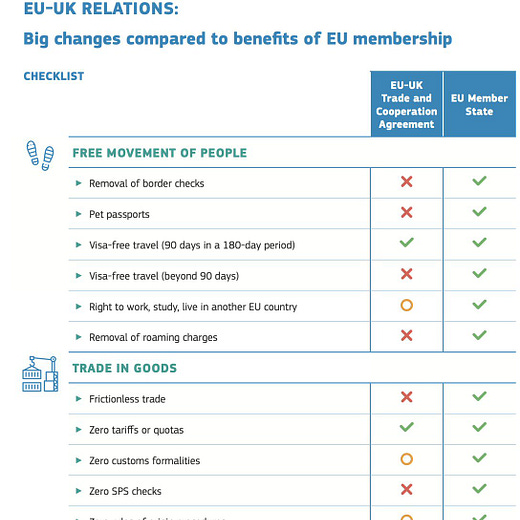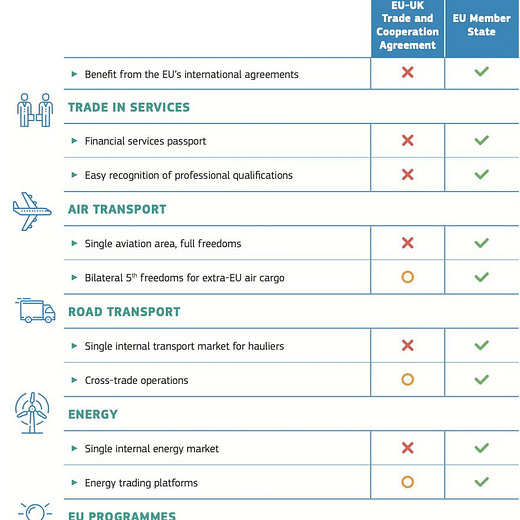Brexit and Scexit
Leaving the EU has caused despair for many anti-nationalists. It should make us more determined.
Some things just make your head hurt.
Like how a black hole has zero volume but infinite mass. The plot of a Christopher Nolan film. Bottling your pedantry when people say “literally” when they mean “figuratively”. The SNP’s Brexit position.
Having said that “any deal is better than No Deal” Nicola Sturgeon will tomorrow whip her MPs to vote against the deal. She does so safe in the knowledge that other parties will take responsibility for avoiding a catastrophic No Deal by the end of the week. Her decision is, as with everything her party does, all about politics. But is it really smart politics?
Take a few seconds to read the next two sentences more than once, because this is where your temples should start to throb.
The SNP say the rules of trade outlined in the EU-UK deal are so bad for jobs and trade that they would rather vote for No Deal. The SNP also want the very same set of rules to govern trade across the border with England in the future.
If my politics demanded I reconcile this contradiction, I think my head would figuratively explode.
The rules that govern trade between Scotland and England and Wales are so important because, as the SNP Government’s own Chief Economic Adviser reminds us here, we sell far more to other parts the UK than we do to the rest of the EU.
If we’ve learnt anything from the folly of Brexit it is that the detail of trade deals matter. It isn’t good enough anymore for nationalist politicians to pretend we are being ridiculous for asking questions about borders and chuckle-snort, “they won’t stop trading with us!”
For years now, Nicola Sturgeon has avoided confronting the reality that she seeks to move a harder border from Dover to Gretna. The First Minister said that she could not answer questions on this because she did not yet know what sort of deal the UK would have with the EU.
It’s really important to grasp what she is conceding here. She acknowledges that the rules governing the border with the EU from New Year’s Day would be the rules governing the border between the Scotland and England from Independence Day.
The SNP’s Verdict on Their New Border With England
Now we know what the terms of the border between a Scotland in the EU and England would look like. The SNP have described it for us over the last few days. Remember: same rules, same consequences.
Their new border with England would mean higher costs and reduced access for Scottish businesses buying and selling to the English and Welsh market.
Their new border with England would mean customs red tape and costs for those trading with the rest of Britain.
Their new border with England would mean a disaster for farmers selling to the rest of Britain.
Their new border with England would mean customs checks between Scotland and England; would mean our financial services industry won’t have passported access to customers down south; would means charges for using your mobile when you cross the border…
Nicola Sturgeon’s argument is that applying the new trade rules to the £16 billion of Scottish trade with the EU diminishes our nation, but that applying the exact same deal to the £51 billion of trade we do with the rest Britain would somehow be empowering.
It is an argument that cannot be sustained with any credibility, so she will try to change the conversation back to emotion and away from economics. Before she does, those of us who oppose nationalism need to recognise this as a significant moment: the SNP vote is a declaration that they know their new border with England is bad for Scotland.
Framing Scexit as an Addition Not an Alternative
I wanted to start writing these things so they could be a source of useful arguments rather than sterile analysis. So here’s my advice.
The SNP believe that Brexit is the strategic opportunity for the campaign to leave the UK. However, what appears to be their main source of strength leads back to their fatal flaw. By using the economic costs of erecting a border as a premise for their argument to, well, erect a border, they are choosing to fight on their weakest ground: the economy.
People will not vote to leave the UK if they believe it will make them and their families poorer.
The reason the SNP lost in 2014 was that they were incapable of thinking and feeling what the million floating voters in the middle thought and felt: that the decision to remain in, or leave the UK is one which is pragmatic and economic. Their entire strategy was about getting past those economic questions so that they could get to the stuff they were really interested in: creating a separate state. The reason they lost was that the economic questions were not a side issue for undecided voters, they were the issue.
By talking about the economic costs of Brexit, the SNP are moving onto our territory. We should embrace this and work to keep this framed as an argument about what the best economic choice is for Scotland.
Big political debates tend to have a kind of calculus behind the arguments that are used. Here the formula is OR versus AND. The SNP want to frame the choice as Brexit OR independence. When you notice that frame behind their argument do not let it go unchallenged because the reality is that Scots would face the impact exiting Europe AND then the far bigger costs and insecurity of exiting the UK. People are weary of all the chaos and noise. Scexit offers more of this, not less. Be clear that exiting the UK isn’t an alternative to the insecurity of recent years, it is an addition to it.
Mind Your Language
Superficially the polls have moved on these economic issues, but only because almost nobody is making these arguments in a sustained way. Brexit despair has kept our heads down, but unless we get up and make the argument for shared institutions and open borders, we will be bemoaning the impact of an even more destructive nationalism in a few years.
So, in simple language talk about how:
We buy far more from companies down south and sell more to them than we do to companies in Europe.
Leaving Europe isn’t good for jobs but leaving the UK would be far worse.
Moving the border from Dover to Gretna creates a bigger headache for us, it doesn’t solve Brexit.
The SNP’s cure for Brexit is worse than the illness: a hard border with England, changing currency, and giving up money for the NHS that’s spread from London to all parts of the UK.
When you track a parcel for something you’ve bought from a shop in the Midlands, or sign a contract with a mobile company in Bristol, or get a mortgage with a London bank, it is seamless in the UK because we are a single market.
Choose language to evoke the similarities between the two unions. Talk about leaving the UK or remaining in the UK, about exiting Britain, about what sort deal we will have at the new border with England. Don’t be afraid to use Scexit. Brexit was a cringe-inducing portmanteaux until it suddenly wasn’t and stopped being underlined by your spellchecker. Wield the negatives of Brexit against Scottish nationalists: exiting the UK is worse than Brexit. This language will provoke a reaction from nationalists which will only help amplify the comparisons you make between the two nationalist projects.
We didn’t want a hard border with the Europe and we don’t want a border with England. The SNP will try to make you to own the idiocy of Brexit nationalism. That’s what their vote this week is really about. They want to disqualify you from talking about the economic future of Scotland so you can’t turn the telescope around on them and focus on the economic costs of their own foolish project.
Refuse to step into that trap. Don’t suddenly find yourself defending Brexit just because the SNP are opposed to it. Where you agree with them, say so. For example, on the pointless decision to leave the Erasmus scheme. That creates the space for you to return to the central argument that creating borders costs jobs, cuts public services and causes chaos.
Make these arguments with confidence, knowing the facts, and the voters that will make the difference, are on your side. Make them again and again and people will hear, because, as much as they are comforted by the easy us-and-them solutions, they’re not daft. In the face of the emotional appeal towards difference and division, you need to continually give people a permission structure to acknowledge what they know deep down: nationalism makes us all poorer and we are all better off when we work together.
So far Brexit has depressed those of us who long for a politics that is about more than them and us. It should have animated us to fight harder. We have a responsibility to turn Brexit into a cautionary tale, a warning against the further nationalist misadventure of Scexit.










An enjoyable read for your first newsletter Blair, I'm looking forward to reading more of your work in 2021.
Yet there are other political forces which can’t be framed so neatly into the debate. For example - the allure f sovereignty trumped economic pragmatism in the EU debate. Indeed the process took on its own momentum in ‘take back control’ drowning out all trade and economic arguments. Then there is the issue if trust vis a viz Scotland’s electorate and Westminster which has been recklessly corroded in the Brexit negotiations - You can only lose trust once,” said Nicole Bacharan, a French political analyst. “When it’s gone, it’s gone. “ We’ve all learned that a UK PM and his govt can just undo things when they feel like it. Try framing that behaviour into something which makes Scots voters feel secure with the status quo. In the battle of the narratives there is indeed much to play for in 2021.